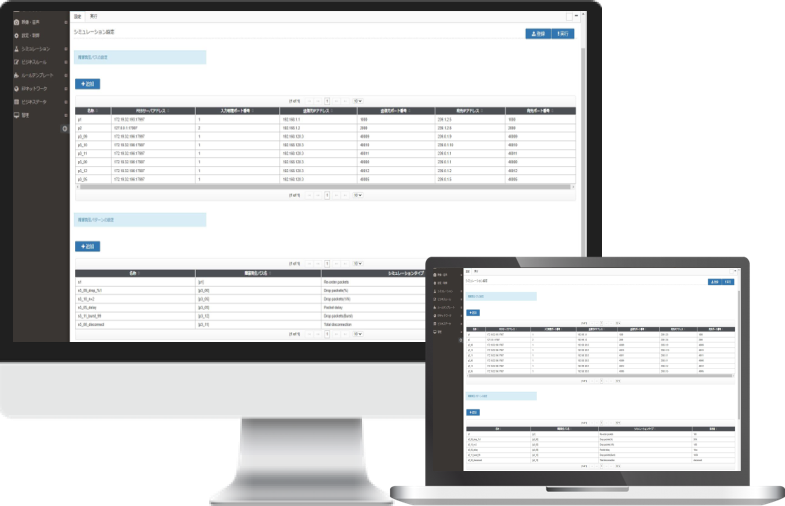
EoM-TFG enables you to see how your broadcast IP system behaves in the event of a failure, which is essential for testing and verification.
EoM TFG Features
1.Three types of drop methods offered
Check the operation of the redundant system and the screen and audio status when a drop occurs.
2.The packet information can be changed in any way
Checking the behaviour when unexpected packet information is received.
3.Delay can be assigned to specified IP flows
It allows users to simulate the situation during network delays.
Main Functions

Configuration
The EoM-TFG allows users to set up and run fault simulations from a browser-based administration screen.
List of simulation settings
The paths and faults can be saved so that the simulation can be run again and again under the same conditions.
Fault path configuration
The transmission fault path is specified by the "port of entry on the FPGA card, source IP address, source port number, destination IP address and destination port number". The name of the path is arbitrary.
Fault Simulation settings (Details)
In the detailed configuration screen, it is possible to select the name of the fault path and the details of the fault simulation.
The fault simulation can also be named according to the details of the pattern and the path.
Fault Simulation settings (Schedule)
Users can schedule the order and the date at which fault simulations are run.
The running schedule is set on a date or time slot basis, but it can be so specified to the second.
Fault Simulation execution
Users can see each status of simulation and path. With regard to the pass, users can see the number of packets received, sent and discarded.


